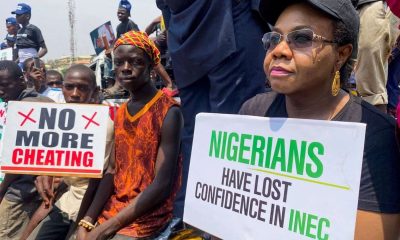One day after the central bank increased the benchmark interest rate to 15.5%, the rate for Nigeria’s one-year Treasury Bills increased to 12% in September 2022 from 8.5% the previous month.
According to the result of the auction, the Central Bank offered to raise a total of N108.71 billion for the one-year treasury and recorded a total subscription of N233.32 billion, representing an oversubscription of 114.6%.
Meanwhile, only N173.81 billion was allotted by the apex bank, which is 59.9% higher than the intended offer of N108.71 billion. The Central Bank during the 287th MPC meeting raised the monetary policy rate for the third consecutive meeting to its highest level in two decades.
In a bid to tame the rising inflationary pressure in the country, the CBN raised the MPR by 150 basis points to 15.5% on Tuesday, 27th September 2022, immediately triggering a 350-basis points uptick in the one-year treasury bills.
The rate change by the apex bank was necessary given growing inflationary pressure in the country as Nigeria’s headline inflation accelerated to a 17-year high of 20.52% in August 2022. It is however worth noting that despite the significant improvement in the t-bills rate, it produced a negative yield of 8.52%.
READ ALSO: CBN takes tough stand on Nigerian Banks’ CRR
The 91-day tenor of the treasury bills recorded a stop rate of 6.49% and attracted a total subscription to the tune of N2.42 billion, representing a 17.6% subscription rate when compared to the offer amount of N12.28 billion.
Also, the rate for the 91-day treasury bills improved from 4% recorded in the month of August 2022 to 6.49%.
In the same vein, the 182-day treasury recorded a total subscription of N3.55 billion in contrast to the offer amount of N20.35 billion. This represents a subscription rate of 16.4%, while the stop rate stood at 7.5%.
The Monetary Policy Committee of the CBN voted unanimously to raise the Monetary Policy Rate (MPR) and the Cash Reserve Requirement (CRR). Notably, the apex bank raised the MPR to 15.5% and the CRR to a minimum of 32.5%.
The CBN noted that the tight policy stance would help consolidate the impact of the last two policy rate hikes, which is already reflected in the slowing growth rate of the money supply in the economy.
It also felt that an aggressive rate hike would slow capital outflows and likely attract capital inflows and appreciate the naira.

 Health1 week ago
Health1 week ago
 Business1 week ago
Business1 week ago
 Latest1 week ago
Latest1 week ago
 Football6 days ago
Football6 days ago
 Health6 days ago
Health6 days ago
 Latest1 week ago
Latest1 week ago
 Crime6 days ago
Crime6 days ago
 Latest1 week ago
Latest1 week ago

